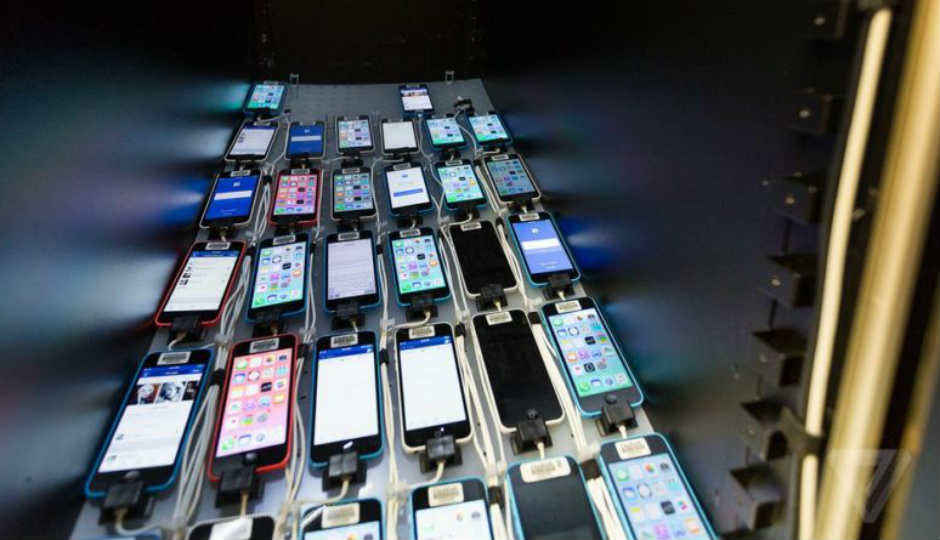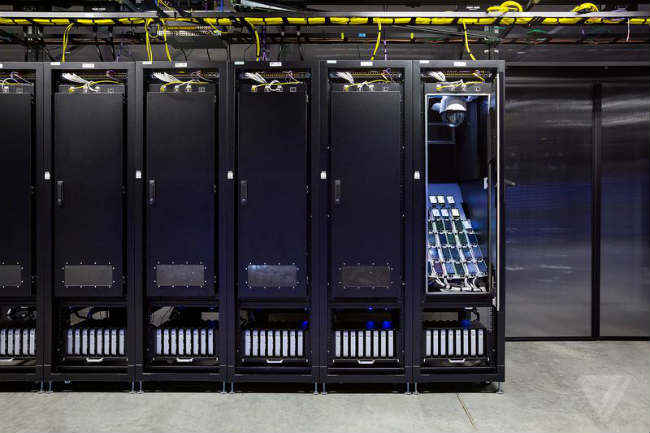Facebook’s CT-Scan lab screens over 2000 phones for app related battery issues

Facebook’s apps are notoriously famous for their ability to drain a smartphone’s battery life. Here’s what they do to try and fix the same.
Facebook recently took a group of journalists (mostly from western media houses) on a tour of their expansive Prineville, Oregon data center. According to what was reported, the facility houses a secret lab, known as the CT-Scan project, wherein the social media giant tests its apps on older, newer smartphones. A total of 2000 smartphones approximately!
It’s a well known fact that the Facebook app, along with Messenger, eats up a smartphone’s battery life in no time. Earlier this year, a bunch of Reddit users conducted a Facebook app efficiency test on the LG G4, which found that uninstalling the app could save upto 20% battery life on an Android device. Similarly, a test conducted by The Guardian found that uninstalling the Facebook app and using Safari instead on an iPhone, could save up to 15% battery life on the iOS device. But, before you start hurling curses at the world’s largest social network, you need to know what the company does to fix such issues with its apps.
At its Oregon facility, Facebook houses 60 customised server racks, filled with around 2000 smartphones, running different versions of Facebook’s apps. Apart from Facebook and Messenger, these phones are also constantly testing Instagram and WhatsApp. The phones here range from devices as old as the iPhone 4, to newer, more recent smartphones such as the Nexus 5s. The Verge reports that Facebook uses a software to scan these devices for any dip in performance or battery life, as and when the company’s engineers introduce new codes in the apps. FB uses a wide variety of devices for these tests, keeping in mind that many users of the social media platform still own older generation devices.
Photo Credit: Vjeran Pavic/The Verge
Facebook’s mobile device testing facility was initiated last year, as part of a project called CT-Scan. The CT-Scan project aimed at keeping FB developers informed incase they made any errors while coding apps. As its name suggests, the CT-Scan software analyses the impact (of any new code submitted by developers) on memory usage of a device, scrolling through feeds, as well as battery drainage.
It is very interesting to note how Facebook developed its testing racks for project CT-Scan. As per reports, the company first used a metal rack because of which the Wi-Fi signal would not seep through to the devices properly. They then moved on to a plastic rack design known as the ‘Gondola’, which created a clutter of wires and USB cables. Finally, the company came up with what’s known as the ‘slatwall’ rack, which could house upto 240 phones at a time, but was not space efficient to replicate. This is why the lab was finally shifted to Facebook’s Oregon data facility.
Going forward, Facebook is looking to expand the number of testing racks from 32 to 64. It is also looking to open-source the rack design and the testing software through its own open-source community in the future.
Main Image Credit: Vjeran Pavic/The Verge





